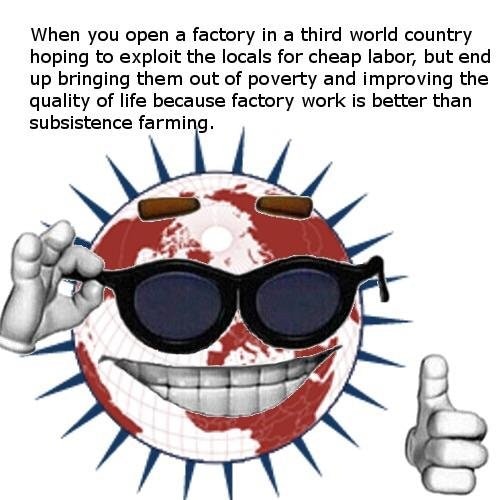One of my great frustrations (and there are many) is that the conventional wisdom about economic history oftentimes is wrong. It is very common for students to learn things that simply are not true.
- The history books usually promote the myth that capitalism caused the Great Depression and that FDR’s policies saved the economy.
- The history books usually promote the myth that antitrust laws were needed to protect consumers from rapacious “robber barons.”
- The history books usually promote the myth that government intervention was necessary to stop sweatshops from exploiting workers.
Let’s add to that list by looking at the issue of child labor. The conventional wisdom is that child labor was a regular feature of an oppressive capitalist system and that children were eventually saved from abuse thanks to government intervention.
Hardly. Child labor was – and still is, in some places – a way for desperately poor people to stay alive and perhaps create a stepping stone for a better future. And capitalism-enabled prosperity is the best way to end the unfortunate practice.
I previously cited some World Bank research, in a postscript to a column on bureaucracy, showing that restrictions on child labor had negative long-run effects on income for poor people.
Let’s augment that research. Here are some passages from a very sobering study about the unintended consequences of restricting child labor (h/t: Dev Patel via Tyler Cowen).
While bans against child labor are a common policy tool, there is very little empirical evidence validating their effectiveness. In this paper, we examine the consequences of India’s landmark legislation against child labor, the Child Labor (Prohibition and Regulation) Act of 1986. Using data from employment surveys conducted before and after the ban, and using age restrictions that determined who the ban applied to, we show that child wages decrease and child labor increases after the ban.
Some basic economic analysis shows why this happens.
…families use child labor to reach subsistence constraints and where child wages decrease in response to bans, leading poor families to utilize more child labor.
And it’s worth noting that there are all sorts of harmful secondary effects.
The increase in child labor comes at the expense of reduced school enrollment. We also examine the effects of the ban at the household level. Using linked consumption and expenditure data, we find that along various margins of household expenditure, consumption, calorie intake and asset holdings, households are worse off after the ban.
The bottom line on this issue is that some children are born to very poor families in very poor nations. In those tragic situations, child labor is a matter of survival rather than a lifestyle choice.
I don’t think that the businesses employing children are noble. Indeed, I wouldn’t be surprised if some of them mistreat kids. And even the nice ones probably would seem horrifying to those of us lucky enough to live in rich western nations.
But I also don’t believe in putting good intentions above real-world results. Businesses that employ child labor are offering a better (or, to be more accurate, offering a less-worse) opportunity for people stuck in horrid poverty. Capitalism is the only effective escape from economic misery.
Let’s close with some libertarian satire. It’s focused more on sweatshops, but it also applies to child labor (and “neoliberal” refers to “classical liberal” rather than modern leftism).

For what it’s worth, child labor was ubiquitous in the western world prior to the explosive growth that was unleashed by free markets and limited government.
If we want poor children in poor families from poor nations to have a better life, we should urge the same policies in the developing world. Assuming we prefer good results over good intentions, of course.

